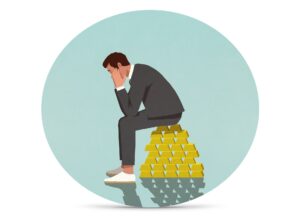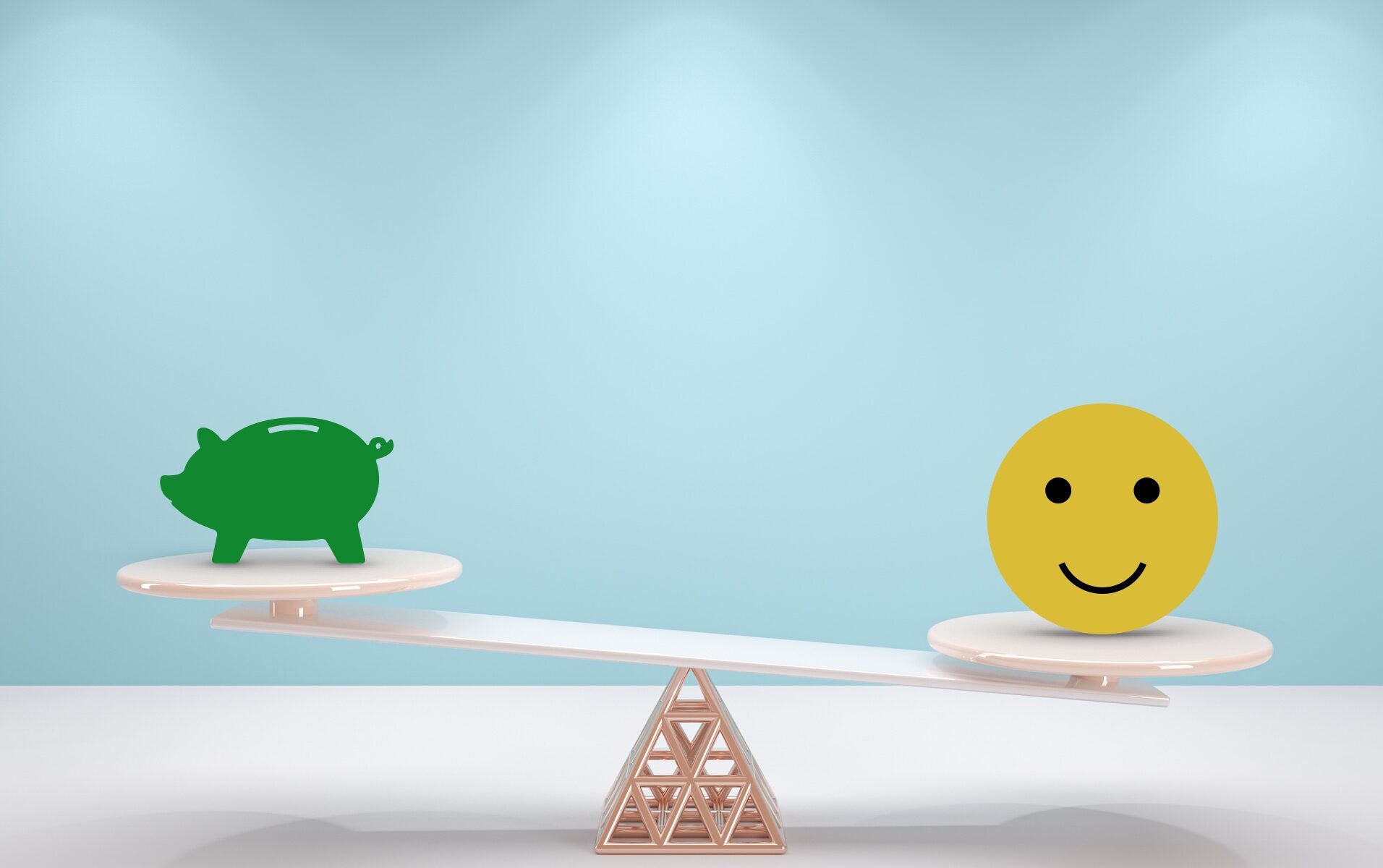The value of money
Scientists delve into the question of happiness.
Scientists have been extensively exploring the connection between money, wealth and happiness for decades. The theses of economist Richard Easterlin are particularly interesting in this connection, as in 1974 he described a paradox that was subsequently named after him.
Easterlin depicted a reality that many of us are already aware of: inhabitants of countries that tend to have a higher income are not necessarily the happiest, whereas those from lower-income countries are not necessarily the unhappiest. However, another aspect of the Easterlin Paradox lies in the fact that a comparison of the income differences within the same country leads to quite different results: in the same area, people with lower incomes are much unhappier, and vice versa.
The world’s happiest inhabitants?
The Easterlin theses obviously take on a very special meaning in a country such as Luxembourg. After all, Luxembourg is often referred to as the richest country in the world. Just a few months ago, Manager Magazin wrote the following: “The Grand Duchy in Central Europe has risen to the top position in the world’s wealthiest nations, whereas Macao, the long-standing number one, has slipped from the top ten. Luxembourg is not only the wealthiest country in Europe according to purchasing-power-adjusted GDP per capita, but also in the whole world. Luxembourg has a population of just 639,117 inhabitants (as at April 2021). The main focus of its economy is the financial sector and its associated services. In 2020, the purchasing-power-adjusted GDP per capita amounted to USD 111,857.71”.
Gross domestic product (GDP) is the total value of all final goods and services produced within a country’s borders during the year in question. The nationality of the producer is irrelevant, as long as the service was provided within the national territory. GDP is thus a key indicator of a country’s economic power.
This begs the question: is Luxembourg also the happiest country in the world?
All of these figures and explanations beg the question: is Luxembourg also the happiest country in the world?
It all depends on our mindset
According to the well-known maxim, money alone doesn’t bring happiness. But although this does ring true, most of us see it as rather naive and often supplement it as follows: “money alone doesn’t bring happiness, but it certainly helps.” There’s nothing reprehensible about earning money. After all, we use it to meet our basic needs and secure our budget – two elements that are crucial for our well-being.
However, we can increase our personal happiness by looking beyond these self-evident facts and better understanding what kind of relationship we have with money. That way, we can learn to deal with it and invest it according to certain criteria that truly match our personality. The key matter here is therefore our relationship with money. As is often the case, it all depends on our mindset!
We want to help you get a better grasp of your relationship with money by carrying out this simple test. It comes from the book Happy Money by the Japanese author Ken Honda. To start, log into your online banking, display all of your account movements and take a close look at your incoming payments, direct debits, standing orders, etc. Don’t just concentrate on your balance, but really look at the money flows. How does this make you feel? Does what you’re seeing make you feel satisfied, happy, worried, angry or even frustrated? In short, are you using your money to make you happy?

Frustration as an alarm signal
Don’t take your emotions lightly. This test could be the first step towards recognising that there’s a significant discrepancy between the way you use your money and your actual wishes and expectations. Anyone who looks at their account statements and feels primarily frustration should have a serious think about their lifestyle.
Even if we aren’t always aware of it, our relationship with money and our lifestyle preferences are largely based on social standards. And these standards change depending on our financial resources. More specifically, greater income is very likely to lead to higher material demands, which in turn play a crucial role in how we assess our own happiness. The pursuit of happiness is closely associated with more material wealth, and this can end up exacerbating frustration levels despite a higher income. Those who aren’t careful may end up under the illusion that the key to happiness is even more money. Money is a means to an end and not an end in itself.
Money is a means to an end and not an end in itself.
It is therefore appropriate to take a step back and ask yourself if your own income allows you to fulfil your wishes, or if it is a barrier to your happiness. After all, it’s crucial to be able to recognise the feelings that you associate with money. If negative thoughts dominate, your financial decisions will suffer. As a result, you run the risk of imitating social standards rather than trying to make your own projects and wishes gradually and consistently become a reality.
To conclude, here’s an interesting insight: donating money or spending it on others brings us joy because we are social creatures and we value reciprocity. Making other people happy makes us happy too. We should also bear this in mind in our attitudes to money. A new year (with good intentions) would be the perfect time for such reflection!


 Mortgage
Mortgage Personal loan
Personal loan Savings
Savings